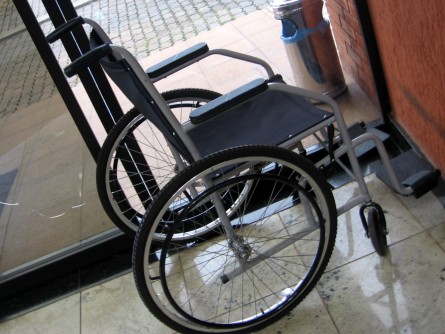In a sense, yes they do. But I don't think it's because professors are giving a politically balanced education. Rather, I think students just aren't paying much attention to their professors. Sociologists often note that this generation is particularly skeptical. They're not a bunch of rebels the way their boomer predecessors might expect. But they don't trust authority much. Maybe it's life in the information age. You don't have to trust what you professor says when you have all the knowledge in the world at your fingertips. That's the charitable explanation for why professors don't change students political views. The less charitable one is that most professors are pretty mediocre. They're not the kind of teachers who change anyone's life, let alone anyone's worldview. They go through the motions but they're not particularly passionate. And even if they are, their subject matter may be so narrow and irrelevant that the professors would be unlikely to influence their charges.
Gross is also correct that we cannot place all the blame on colleges for the declining religiosity of 20-somethings. Church is now much more likely to be a part of the lives of educated Americans than uneducated ones. That being said, it would be hard to deny that many college faculty have had a role in undermining the faith of young adults. (Now, that undermining is probably more likely to happen in high school than it would have been a few decades ago.) Again, though, I wonder how many passionate arguments about the existence of God or the truth of the Bible or the importance of traditional morality are really taking place inside college classrooms. Most of higher education is really much more mundane than that. If you picked 10 courses randomly at any university you might end up longing for a professor who could actually get a rise out of students, whether on the topic of religion, politics or anything else.
Before we leave the subject of academics, though, I just wanted to point out an interesting study that was released last week about the effects of paternity leave on families. A professor at the University of Virginia, and his son, who teaches at the University of Connecticut, surveyed 181 tenure-track professors with children under two. As a group, they claimed to have been extraordinarily committed to sharing parenting tasks equally among men and women. Just as you might expect from a bunch of enlightened professors. But the reality was a little different. The Juggle blog at the Wall Street Journal summarized the results:
Each survey participant was asked how their handling of about 25 child-care tasks compared with their spouse’s handling of the same tasks. Among the tasks: changing child’s diapers; taking child to doctor; feeding the child; staying home from work to care for the child; giving child a bath. The majority of professors -- both male and female, particularly the women -- held the view that men and women should share child care duties. But only three of 109 male faculty members surveyed reported that they did half or more of the care, while 70 of 73 women reported doing at least half -- even when both spouses worked full time. The study found that female professors who take paid maternity leave spent most of their time off to focus on infant care, including breastfeeding. Male professors, on the other hand, used their paid paternity leaves to focus on things other than infant care, such as research and publishing papers. The study also found that women enjoyed doing child care work more than men.
All of which leaves open another possibility as to why students don't find their worldviews changed much by their college experiences. Maybe they have realized that the professors themselves don't really believe what they say.





